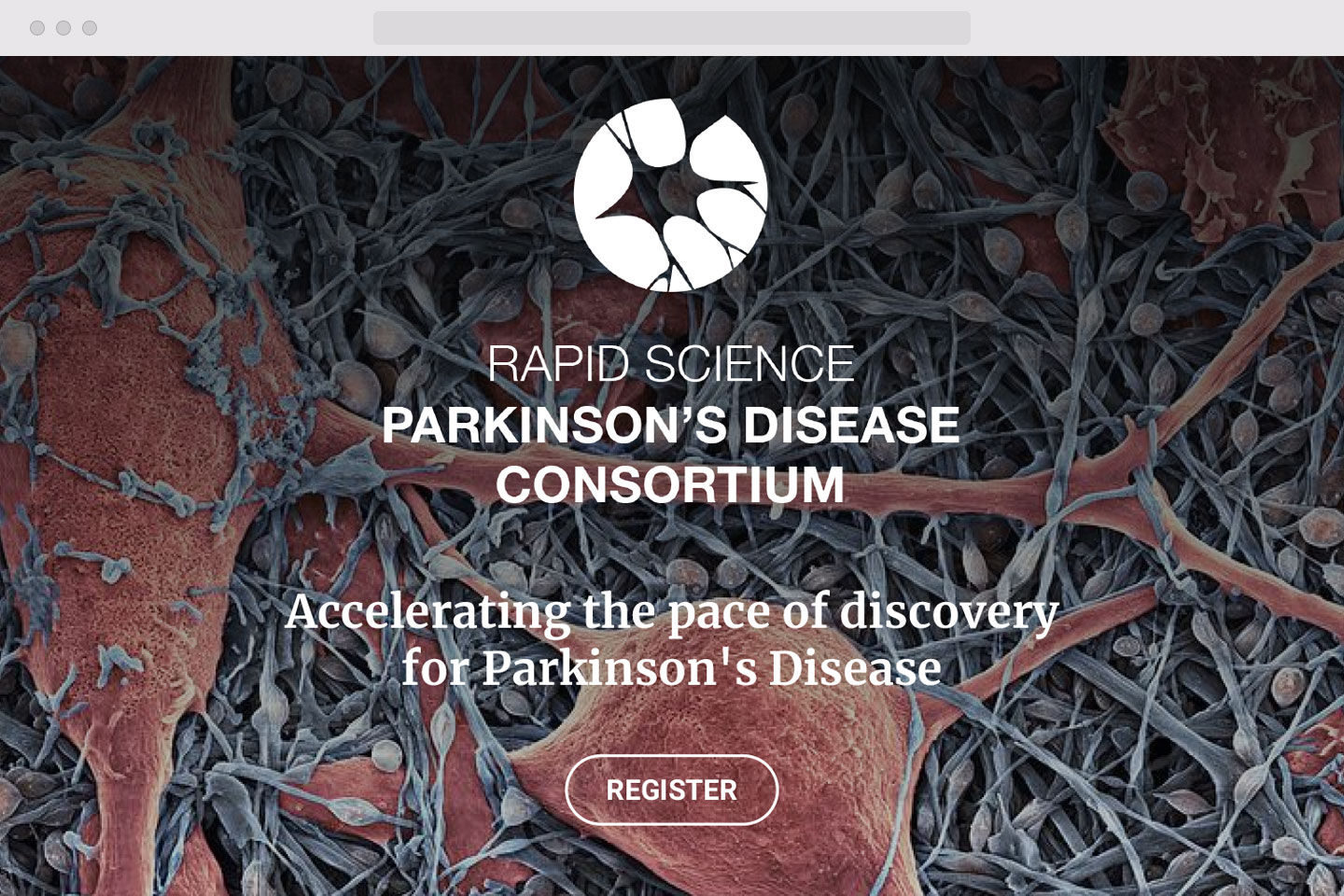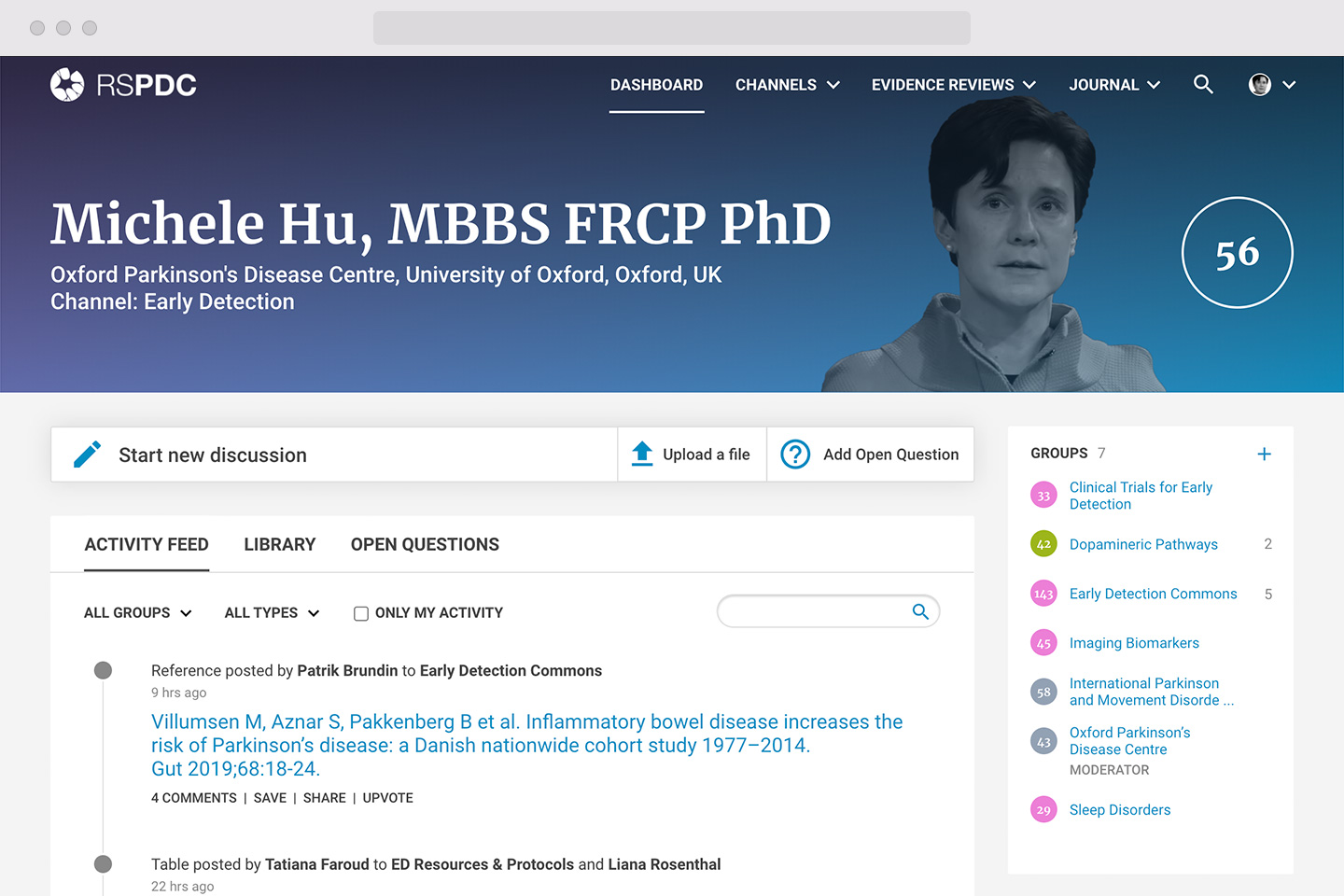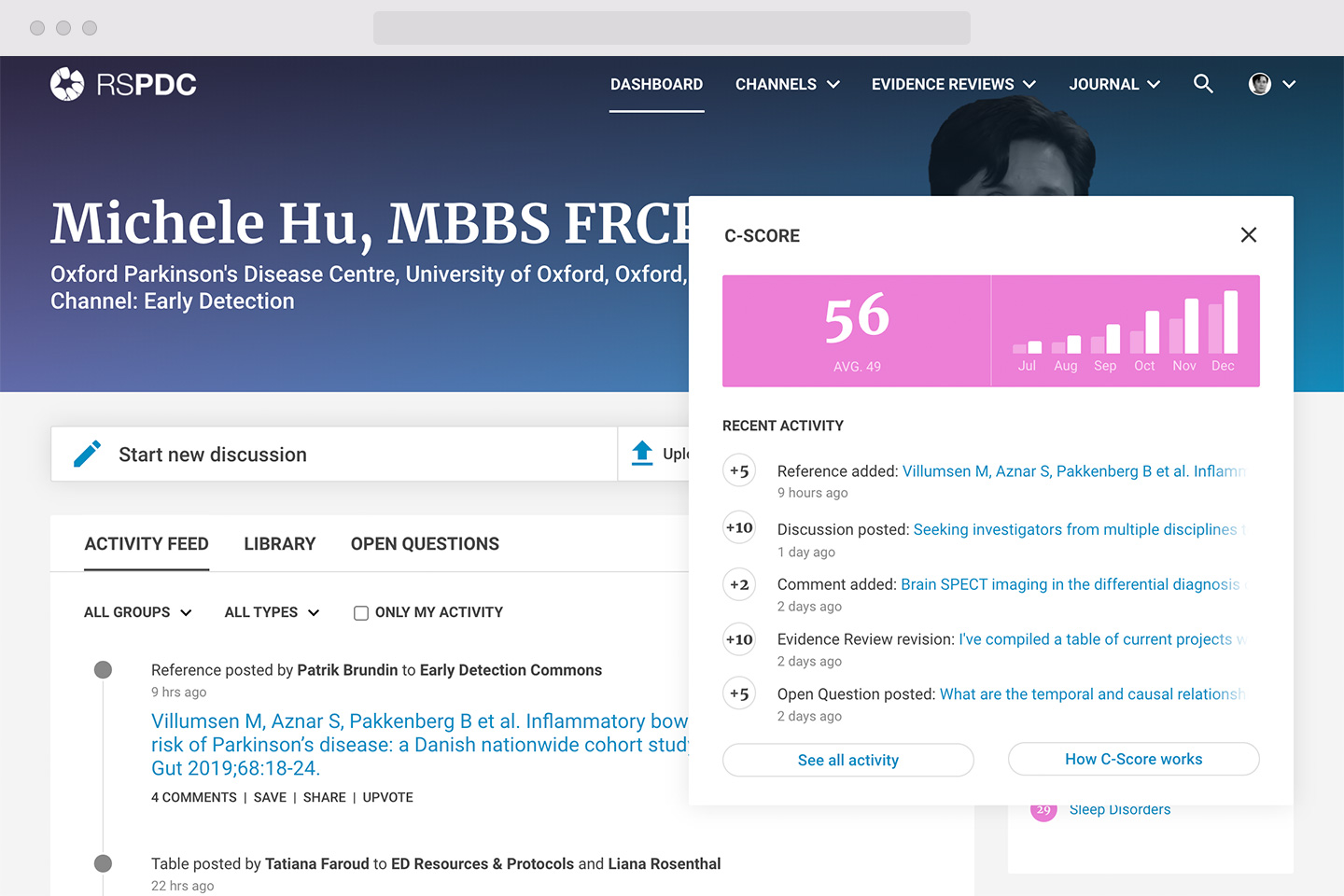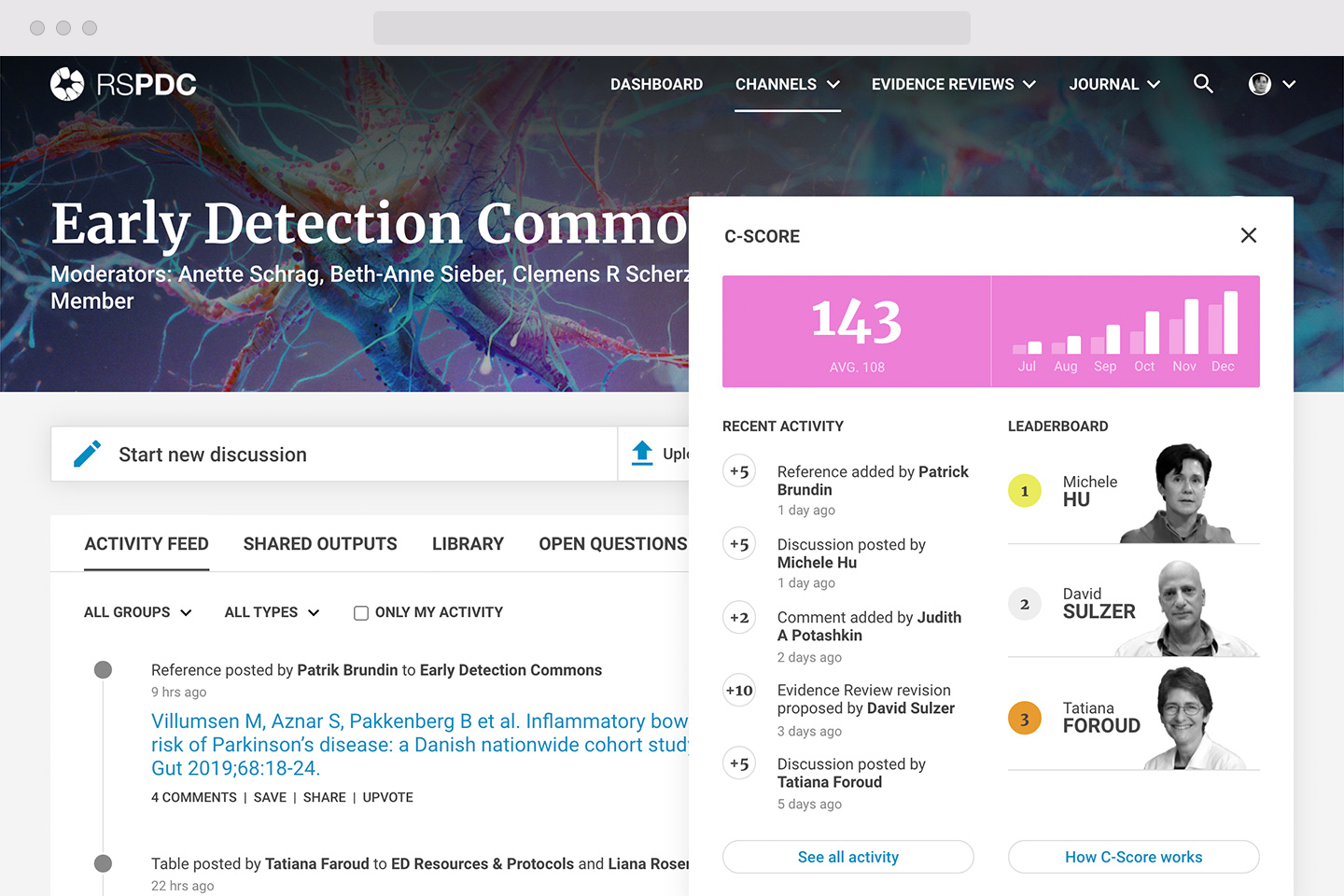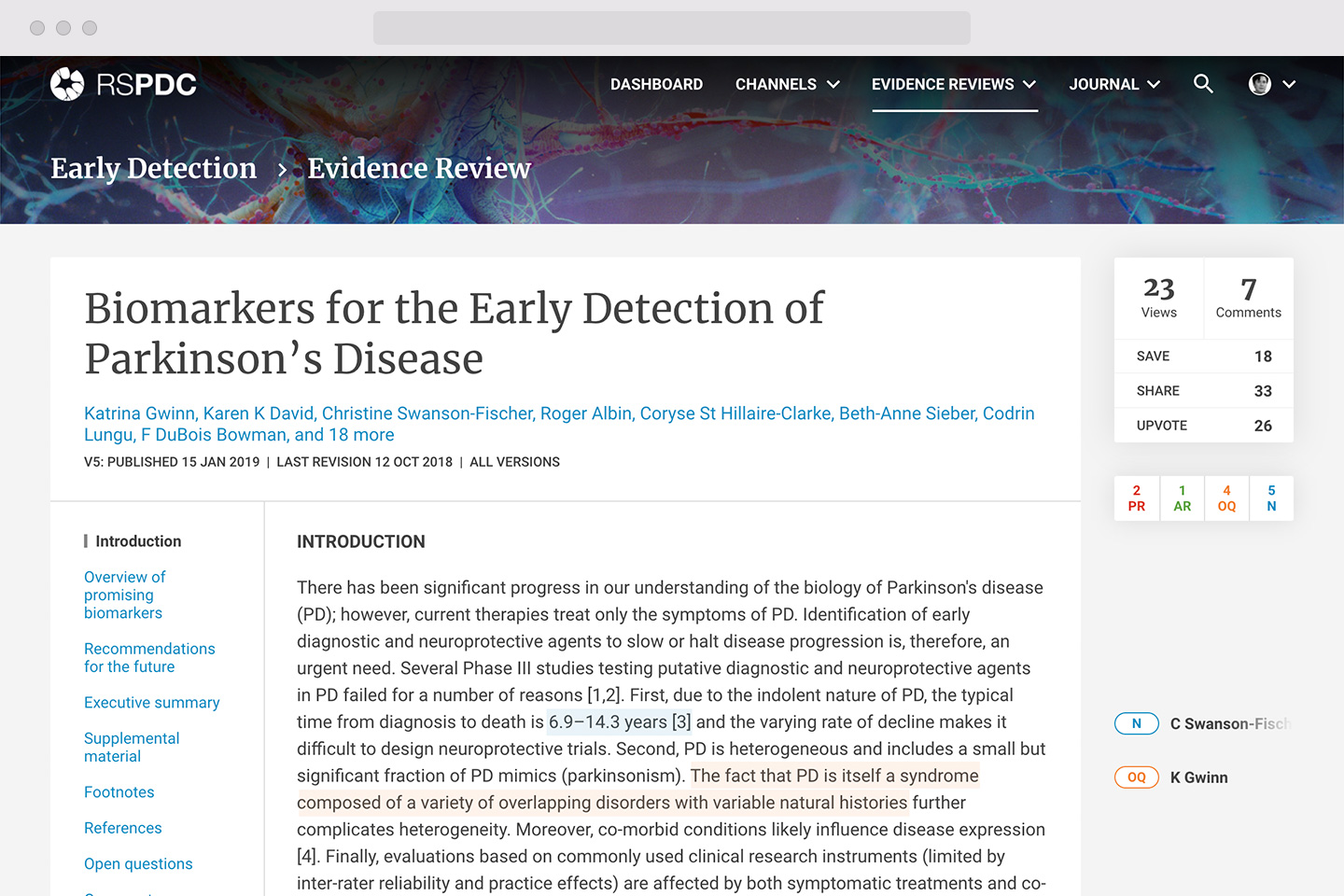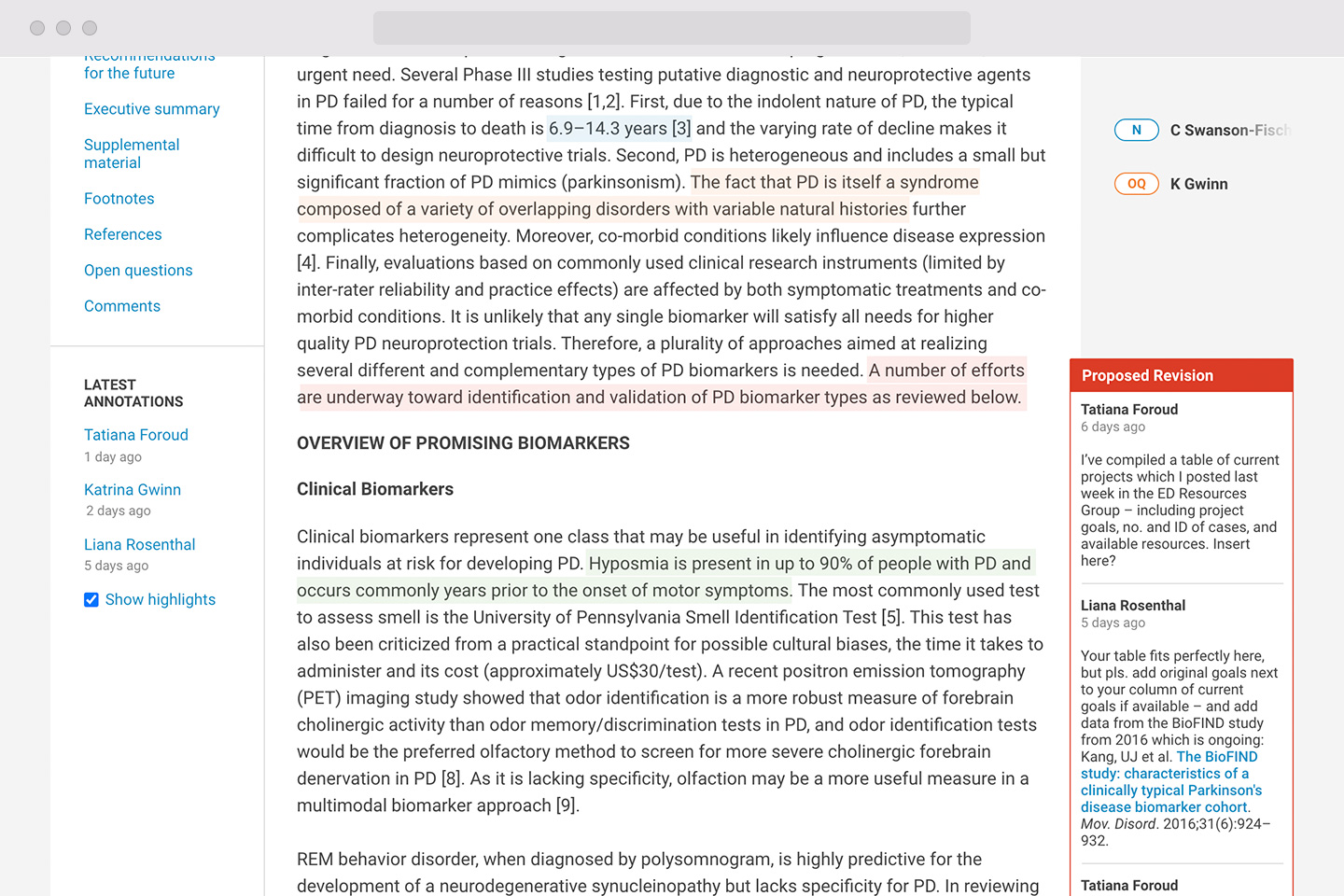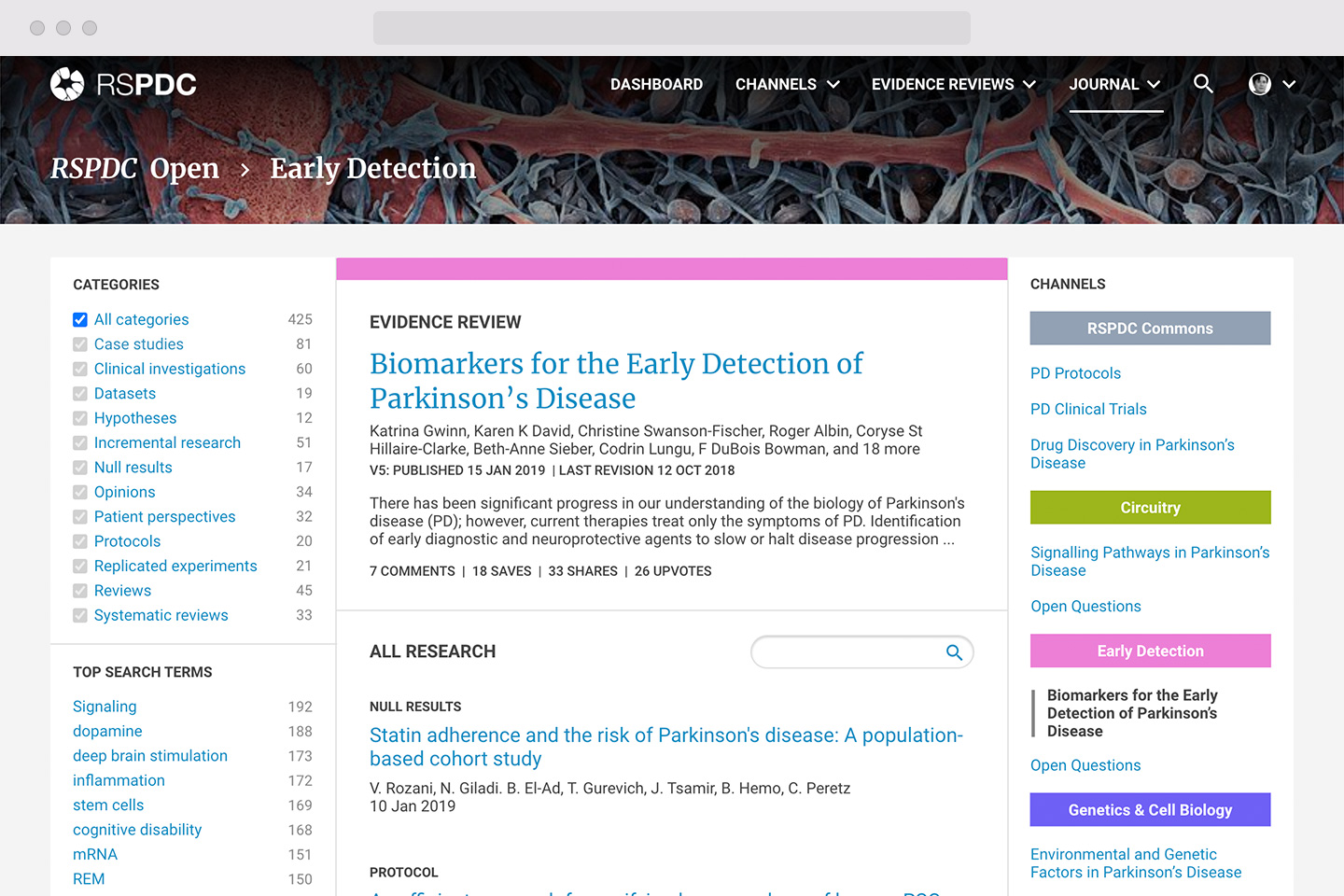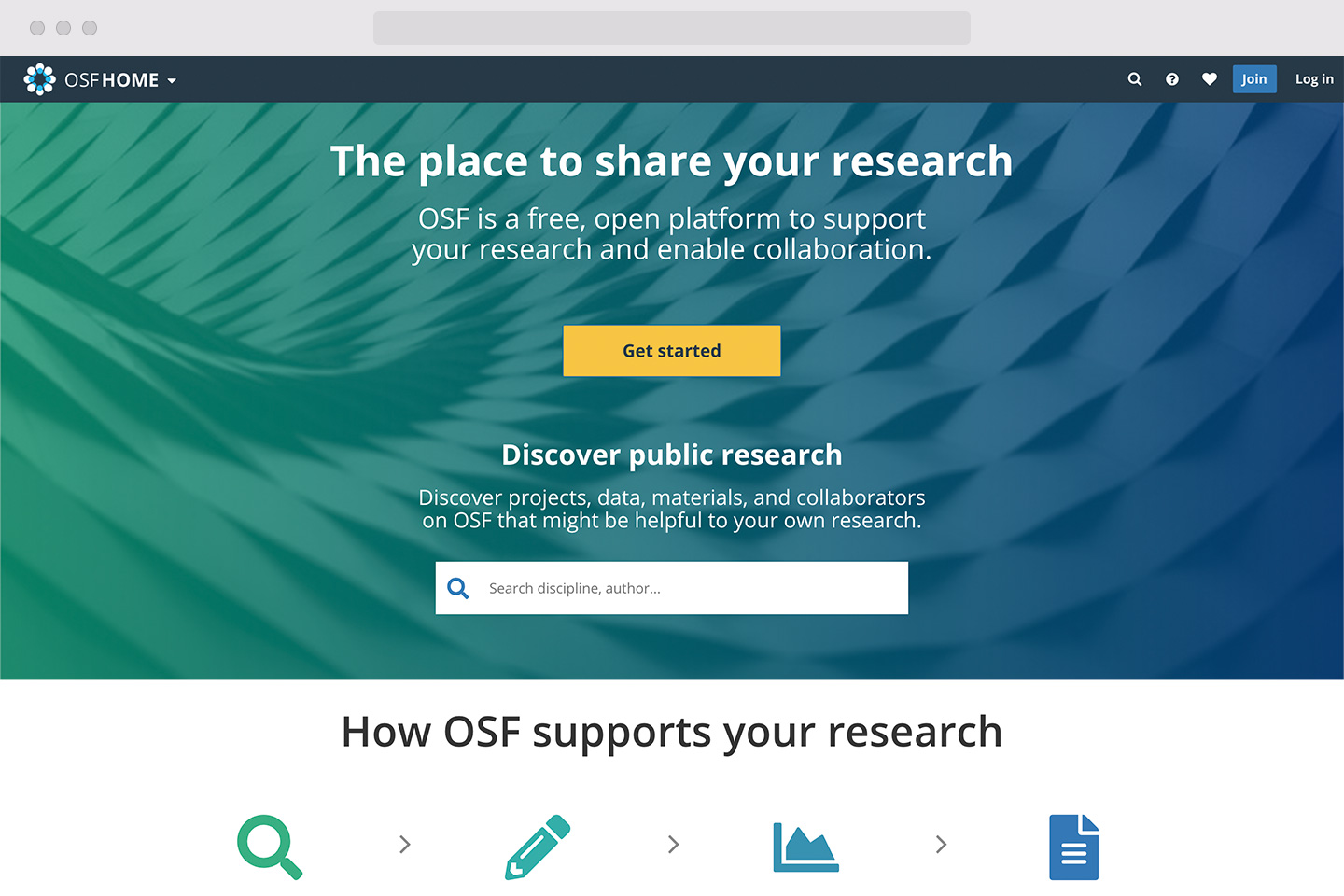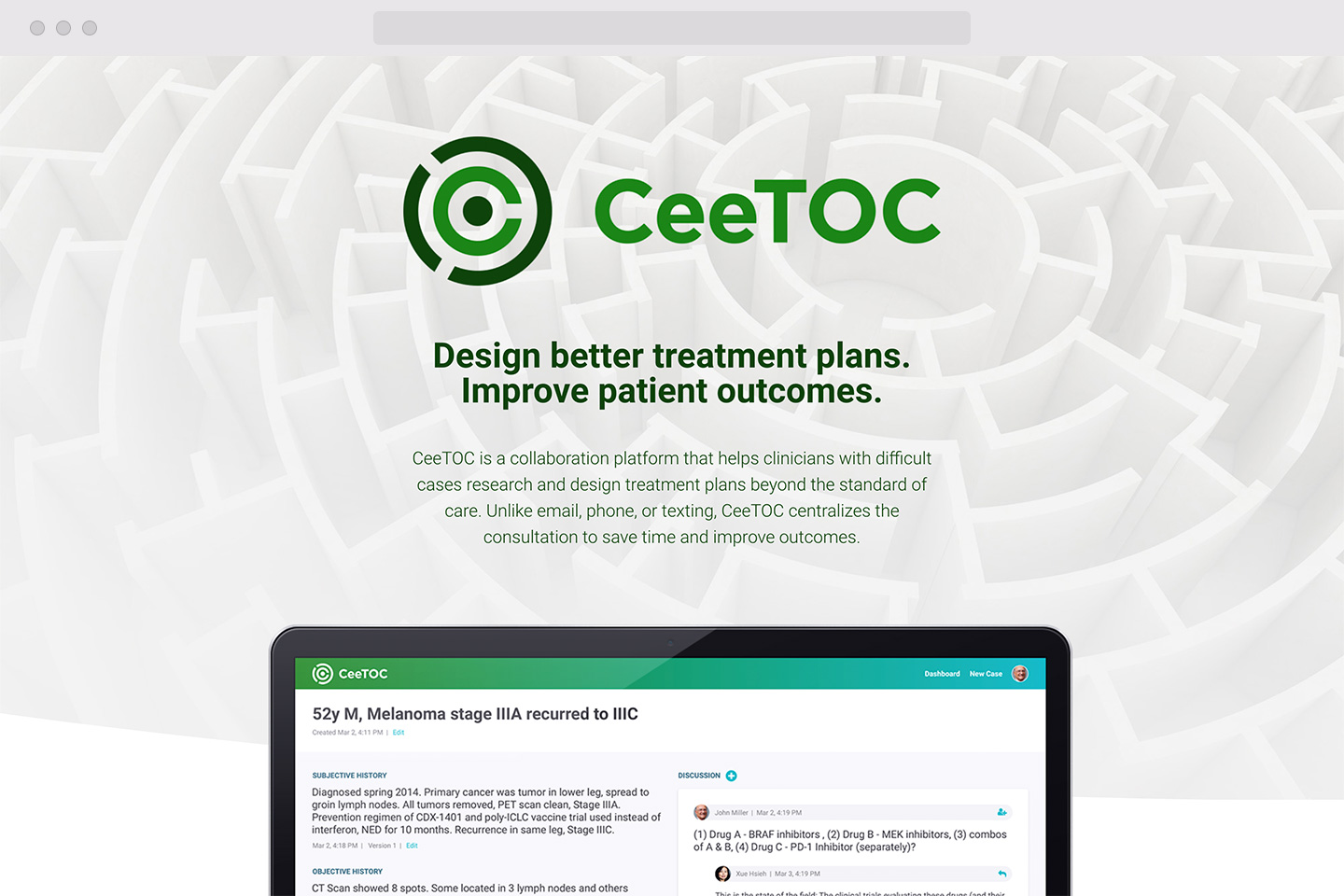2018 – 2020
An exploratory project by Rapid Science envisioning the future of Parkinson’s Disease research with a turnkey platform that promotes and rewards team science.
User research
Product strategy
Information design
UI/UX design
User testing
Brand design
Marketing design
Problem
Research is highly competitive and guarded, slowing the pace and accuracy of scientific discovery. For something like Parkinson’s Disease, even basic research is limited by this “winner-takes-all” model. Cross-disciplinary collaboration leads to better and more reliable outcomes, but there is little incentive for researchers to participate in team science.
Solution
A single platform that supports and rewards open and collaborative research practices through every step of the research life cycle. From funding and study designs all the way to publication and impact metrics, this platform would both promote and reward openness. A new “C-Score” metric counts all collaborative contributions to help change the culture of science.
The researcher’s private dashboard shows activity relevant to their interests, and quantifies their total collaborative efforts with a proprietary metric called the C-Score (the 56 next to the researcher’s photo). Only the individual and funders can see this score and how points were accrued (below).
User interviews revealed a concern that the C-Score could be exploited. A preliminary algorithm has been developed with feedback from researchers, and will require extensive workshopping and piloting before it’s ready to be released. See Rapid Science’s growing list of advisors.
Summary & Results
The prototype conceived here was the latest iteration of platforms designed and built by Rapid Science. Previous sites were developed for Columbia University and the Society of Behavior Change. This one resulted in funding from the Sergey Brin Family Foundation and the Milken Institute to further explore the feasibility of such a platform for Parkinson’s Disease research. Two workshops were held with experts in open and team science in DC and San Francisco. The findings were collected in a final proposal to the funders, and Rapid Science was asked to continue consulting with YLD in London to build and launch the first version of a collaboration platform in 2021.
After the success of the Parkinson’s Disease project, Rapid Science partnered with Stratos to launch Incentivizing Collaborative and Open Research in late 2021. ICOR’s mission is to further build the open science community and promote a culture of change.

